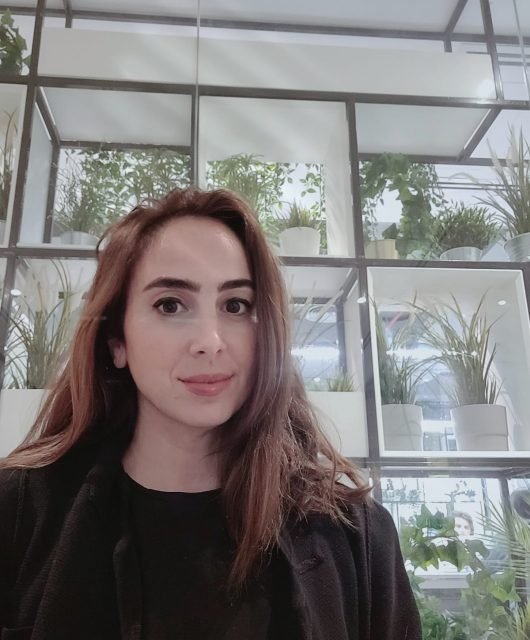WhatsApp Automation – Bespoke Customer Facing Chatbot That Enables Brands To Automate Their Lead Generation Process
By Lovetto Nazareth, Managing Director of Prism Digital

With over 2.2 billion users globally, WhatsApp-based customer engagement tools are revolutionizing the customer service ecosystem for brands. AI-Driven WhatsApp for Business Chatbot Service have reinvented the way B2C brands communicate with customers and transformed the customer interaction experience in the Middle East and North Africa. Today, brands are connecting with its customers using AI chatbots to offer them individualized and effective customer support across a variety of channels and devices. We would like to demonstrate how AI Chatbot for customer service is facilitating customer interactions and is playing a pivotal role in engaging customers across the UAE. As we delve deeper into the impact Artificial Intelligence (AI) has had in shaping the future of Customer Relationship Management (CRM) and driving customer interactions, we would like to showcase how come of the Top Tier brands in the region have used AI chatbots to speed up customer interactions, increase customer satisfaction, reduce the time it takes to convert leads from inquiries, and most importantly, be available to customers whenever they need them without the use of pricey call centers.
The Rise of AI powered Chatbots
The introduction of AI-based chatbots has been a game-changer in reshaping customer interactions. Artificial intelligence (AI) chatbots are intelligent digital assistants that can interact with clients in real-time and respond to their inquiries with relevant, tailored, and personalized responses by utilizing machine learning algorithms and natural language processing. Customers can access these chatbots 24×7 and these can be installed on a variety of platforms, including websites, mobile apps, and messaging apps such as WhatsApp and Facebook Messenger. When it comes to implementing AI technology for customer engagement, Dubai has been at the forefront of riding the wave and has created a benchmark in adopting pioneering machine learning technologies. The local government has initiated a number of programs to encourage companies to use chatbots powered by AI to enhance consumer service ecosystem.
Chatbots in Hospitality Industry
AI-powered chatbots are deployed in the hospitality sector enhance to visitor interactions and simplify the reservation process. A chatbot created for one of the International Group of Hotels accessible on Facebook Messenger and Slack serves as a nice example as it enabled customers to use the chatbot to look for various hotels locations, make hotel reservations, and even get suggestions for nearby eateries and attractions. Additionally, the chatbot employs natural language processing to decipher consumer inquiries and provide answers specifically tailored to each user, expediting the booking process. The hotel saw a significant increase in the proportion of guests who actively engage with the brand and ultimately make a purchase or a transaction after using the chatbot.
Chatbots for the Real Estate Industry
Another sector that has embraced AI-based chatbots for customer engagement is Real Estate. One illustration is a well-known Real Estate website in the UAE that features a chatbot allowing clients to look for properties, get listings information, and even schedule home tours. This enables agents to contact the prospective customers right away when they initiate the engagement or query. The chatbot also makes the house purchase process more streamlined and customized by using natural language processing to comprehend customer queries and deliver pertinent answers. Customers rated the chatbot they implemented as the highest ranking real estate chatbot in Dubai, and the Real Estate Company saw a reportedly considerable boost in customer interaction and lead generation since the deployment of the chatbot.
An impressive example of a Real Estate chatbot in operation is the AI chatbot created by a local Real Estate aggregator website in Dubai. The chatbot employs machine learning techniques to adapt its responses over time by gathering knowledge from consumer encounters and is accessible on the website as well as WhatsApp. The Real Estate agency has noticed a significant drop in consumer enquiries entering its call center since the chatbot’s debut. As a result, human agents can now concentrate on handling trickier questions and responding to legitimate inquiries that the AI has already pre-screened.
The AI Chatbot phenomenon
A WhatsApp chatbot is an automated software that utilizes artificial intelligence (AI) to run. User are able to communicate with the WhatsApp chatbot via a seamlessly integrated chat interface just like they would with a real person with a series of automated WhatsApp responses that humanizes the inetraction. Brands can get authenticated on WhatsApp by following a few simple steps to verify themselves on WhatsApp for Business API. To automate sales and customer support, brands can combine your systems with WhatsApp APIs, such as WhatsApp bot, CRM, chat agent’s dashboard, etc.
WhatsApp for Business is a platform where brands can upload the entire database, broadcast messages to their existing audience, and invite potential customer to join. Brand campaigns that focus on WhatsApp, can build a larger database and improve engagement with features like Call to Action, Automated Messaging, FAQ integration, Live Chat, Booking Engine Integration, and Bulk Marketing are also useful. This enables the brand to inform and interact with audiences and progressively generate meaningful leads promising strategic customer engagement.
With the ability to integrate with over 150 different platforms, including social media apps, messengers from Facebook, Instagram, and even website-based chat modules, is one of the primary benefits of AI WhatsApp chatbot for business in the UAE. The Facebook parent company Meta has granted the WhatsApp AI Chatbot a license to broadcast messages to more than 1.5 million users at once and to communicate in 150 different countries. The data from WhatsApp marketing campaigns can be used on platforms like Facebook, Instagram, Snapchat, YouTube, and TikTok.





